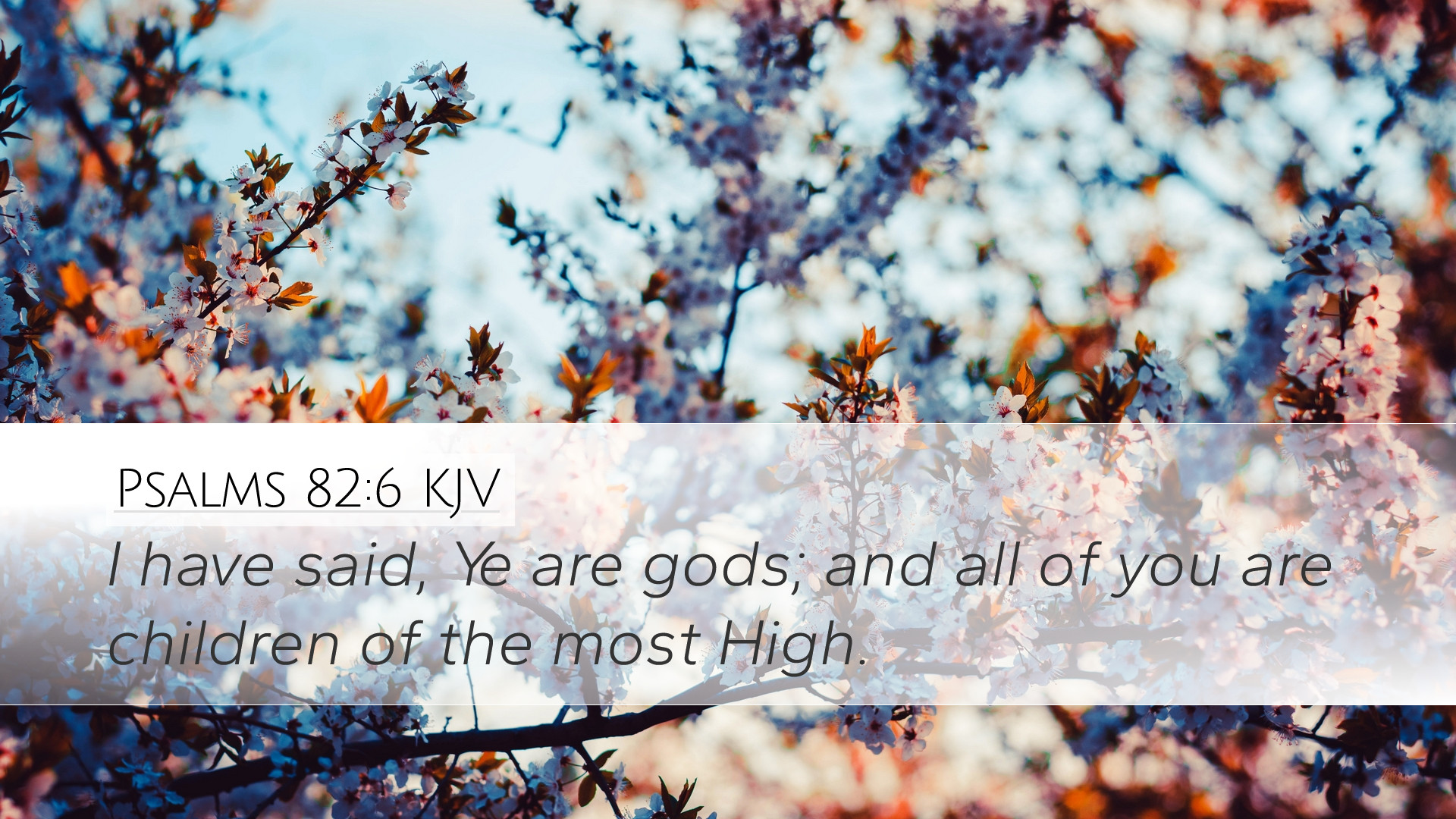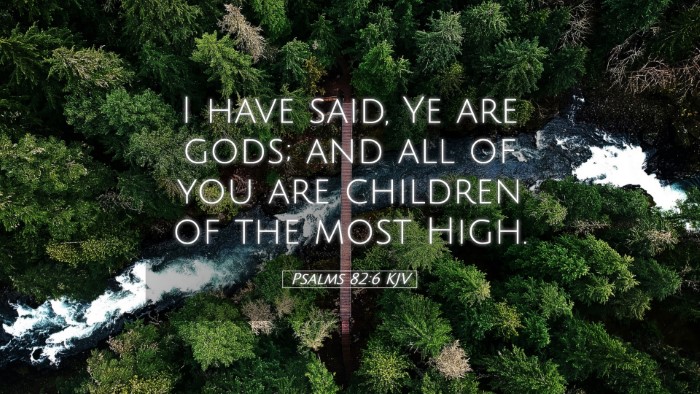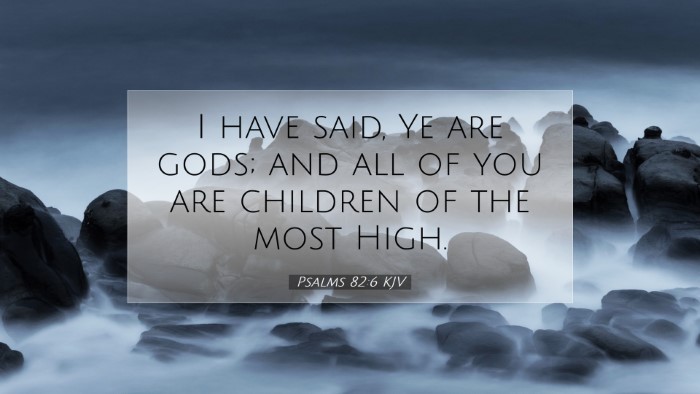Psalms 82:6 - Biblical Commentary
Verse Text: "I have said, Ye are gods; and all of you are children of the most High."
Introduction
Psalms 82 is a profound psalm that speaks to the social injustices and moral failures within the community of Israel. In verse 6, we encounter a declaration that has long been the subject of theological discussion. The assertion that humans are "gods" and "children of the Most High" requires careful examination in light of its implications regarding authority, divinity, and human dignity.
Context and Setting
This psalm is attributed to Asaph, a prominent Levite singer and worship leader during the time of King David. The psalm addresses the judges and leaders of the people, rebuking their failures to execute justice and uphold righteousness. It stands as a reminder of the divine mandate given to leaders in their governance, calling them to reflect God's justice on Earth.
Exegesis of Psalms 82:6
Matthew Henry's Commentary: Henry underscores that the term "gods" acknowledges the authority bestowed upon earthly judges. They are called "gods" in a figurative sense; they represent God on earth in their capacity to administer justice. However, there is a grave warning—despite their exalted position, they are still mere mortals subject to failure. Henry warns that those who abuse their authority will face divine judgement.
Albert Barnes' Notes: Barnes elaborates on the significance of the phrase "Ye are gods." He interprets it as God asserting the divine nature of leadership among His people. He emphasizes that this status is a privilege and is accompanied by responsibility. These leaders are to be reflections of God's character, modeling justice, mercy, and righteousness, given their unique relationship as "children of the Most High."
Adam Clarke's Commentary: Clarke takes a more expansive view, connecting this verse with the larger narrative of the psalm, which highlights God's sovereignty and authority over all. He notes that the title "gods" may also extend to all believers, emphasizing humanity's creation in the image of God. He encourages readers to recognize their inherent worth as children of God, called to exhibit His nature in their lives.
Theological Implications
- Authority and Accountability: The leaders addressed in this psalm have been granted authority as representatives of God's justice. Their failure to execute true justice has societal ramifications, pointing to the importance of integrity in leadership.
- The Divine Image: The description of humans as "children of the Most High" affirms the inherent dignity and value of every individual. It recalls Genesis 1:26, where humanity is created in the image of God.
- Understanding of God’s Justice: This passage presents a challenge and encourages leaders to align themselves with God's standards of justice, mercy, and righteousness—hallmarks of divine character.
- Warnings Against Perverted Justice: There is a clarion call for leaders to be wary of deceit and corruption, as they are ultimately accountable to God for their actions and the welfare of their people.
Practical Applications
For pastors, theologians, and students, Psalms 82:6 serves as both a reminder and a challenge:
- Leadership: Embrace the gravity of leadership roles, recognizing that they come with both authority and accountability.
- Reflection of Divine Nature: Strive to reflect God's character in dealings with others; offer mercy where needed, uphold justice, and lead with integrity.
- Human Worth: Encourage communities to see the inherent value in each individual as they are all made in the image of God.
- Justice in Practice: Work actively towards achieving social justice, advocating for the marginalized and oppressed, reflecting the heart of God in the community.
Conclusion
The statement "Ye are gods; and all of you are children of the most High" bears profound significance underlined by themes of authority, privilege, and responsibility. It challenges both leaders and followers of Christ to rise to their divine calling, recognizing the weight of their roles in the pursuit of justice and righteousness. Through this verse, Scripture not only affirms the dignity of humanity but also serves as a compelling reminder of God’s unyielding demand for justice from those in power.


